Tomorrow never dies
By Omid Neishaboory Nejad
Coming from a fast developing country with different levels of exposure to modern and complex urban lifestyle on one hand and old simple rural lifestyle on the other hand made my experience in Myanmar absolutely unexpected, heartwarming and inspiring. I was born and bred in Iran, a country full of natural resources, great minds, fascinating history, and plenty of things to be proud of. Growing up and being a vet in Iran gave me the chance to live and work with people with different backgrounds and perspectives and what I learnt from that was being “open” to people, appreciate their “happiness” and “do something” when it is required. I chose to go to vet school again after moving to Australia and participating in the Dahat Pan Project as a final year student was one of the rewards of that decision!
In short, the Dahat Pan Project is a 4 years long research project funded by ACIAR aiming to improve the livelihood of the smallholder farmers through enhancing livestock health and production in the Central Dry Zone of Myanmar.
As a group of 4 final year veterinary science students of The University of Melbourne and 2 senior veterinarian supervisors we joined a passionate group of Master of Veterinary Science students from Myanmar’s University of Veterinary Science. We visited a number of villages near Meiktila, Myingyan and Bagan in the Central Dry Zone where the field research of the project takes place. The visits included running farmers meetings, household surveys and cattle blood sampling for blood parasite investigations.
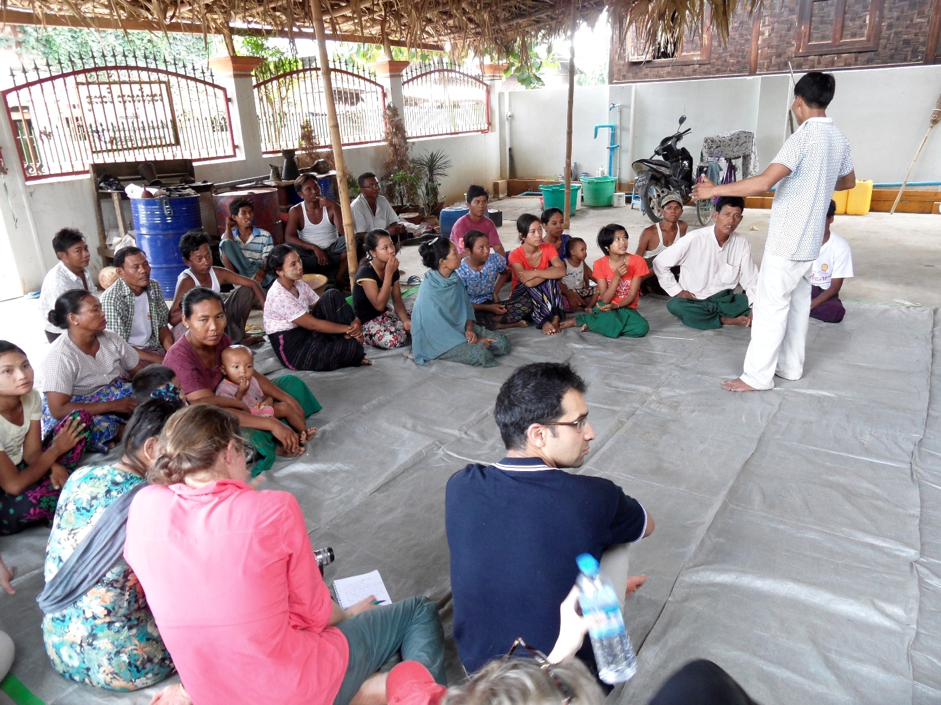
Farmers meeting
Farmers meetings were where the Australian supervisors, Angus and Elsa and the Myanmar team, patiently listened to the farmers’ concerns and gave advice to improve the livestock health and production. Seeing the farmers and the supervisors happily sharing and discussing the positive outcomes of the project deliveries and also observing the other farmers’ enthusiasm to learn and do what the others have already done defined the concept of “being open” to other people no matter if they are your neighbour or someone who you need a translator to communicate with.
Creep feeding for baby goats (kids) was one of the successful project deliveries to the small holder farmers, highlighted by their significant influence in survival and growth rate of kids expressed by the farmers. During the farmers meetings it was inspiring to see how willing those farmers using creep feeding were to share their positive experience and “happiness” and how “open” the other farmers were to the new ideas.
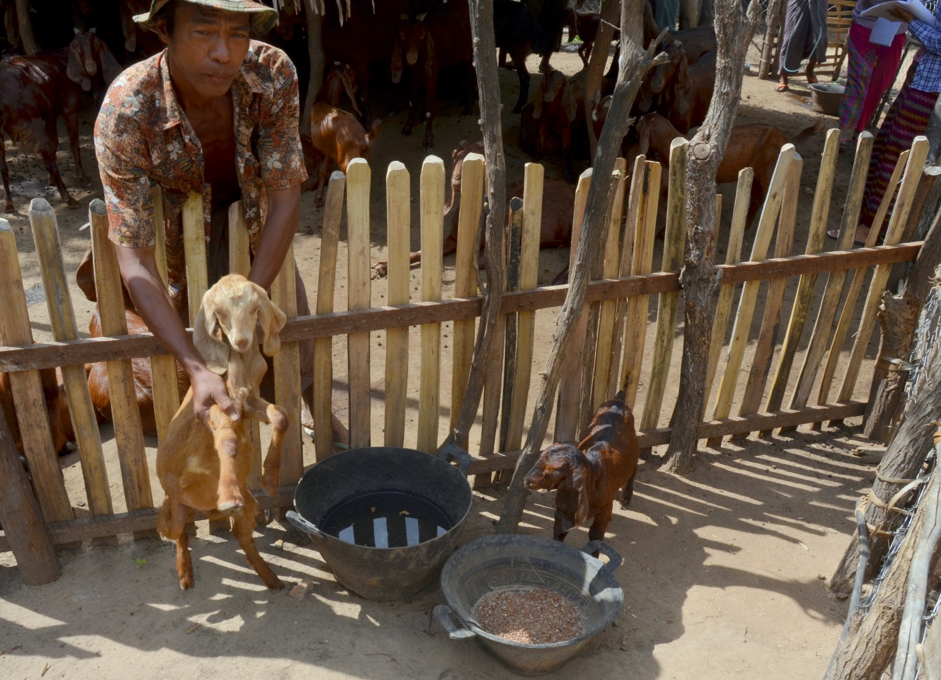
Creep feeders are simple, practical and smartly designed to give access to feed and water to kids up to 6 months old.
I had read that Myanmar people are ranked as the most giving nation on the earth by the CAF World Giving Index 2016 and I felt it during the household surveys. Sharing their “happiness” by hosting us in their houses, offering us their best foods, showing us photos of their children who had gone to neighboring countries to work and being remarkably “open” to us by answering the survey questions truly outlined their generosity.
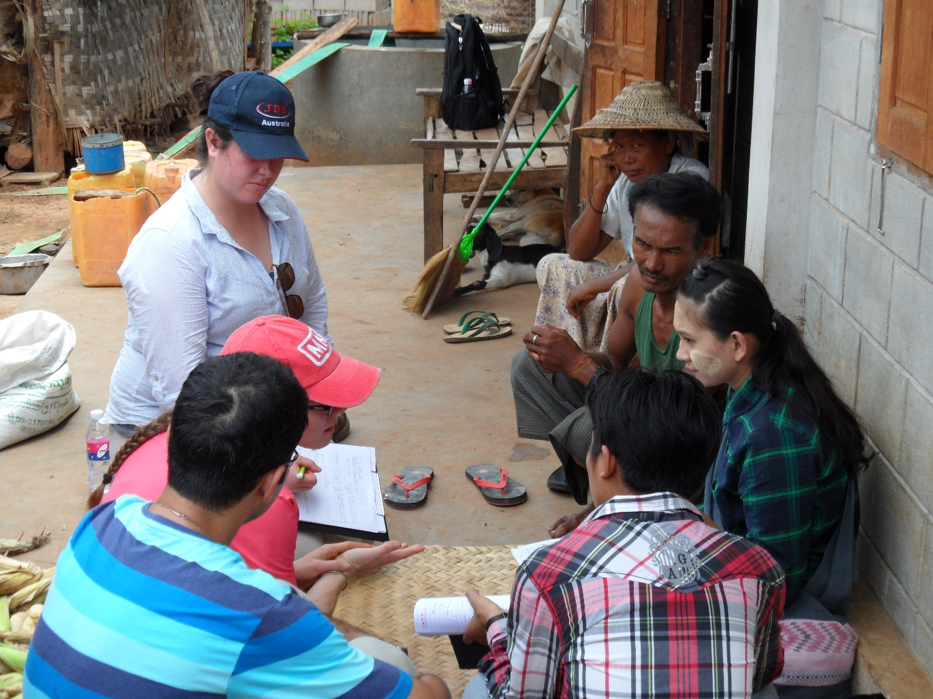
The household surveys were designed to evaluate the projects outcomes and to detect current livestock health problems and the farmers’ concerns.
Working with the Myanmar UVS students was by far the most gratifying part of the trip. They were enthusiastic, hardworking and unbelievably talented in obtaining new skills and participating in the research project. Their teamwork, alliance and passion for helping the locals was a clear reflection of “do something when it is required”. The collaboration between UVS student, UoM students and the project supervisors effectively showed me how a hard task can become simple, enjoyable and more efficient when people tightly integrate their abilities to become one functional unit.
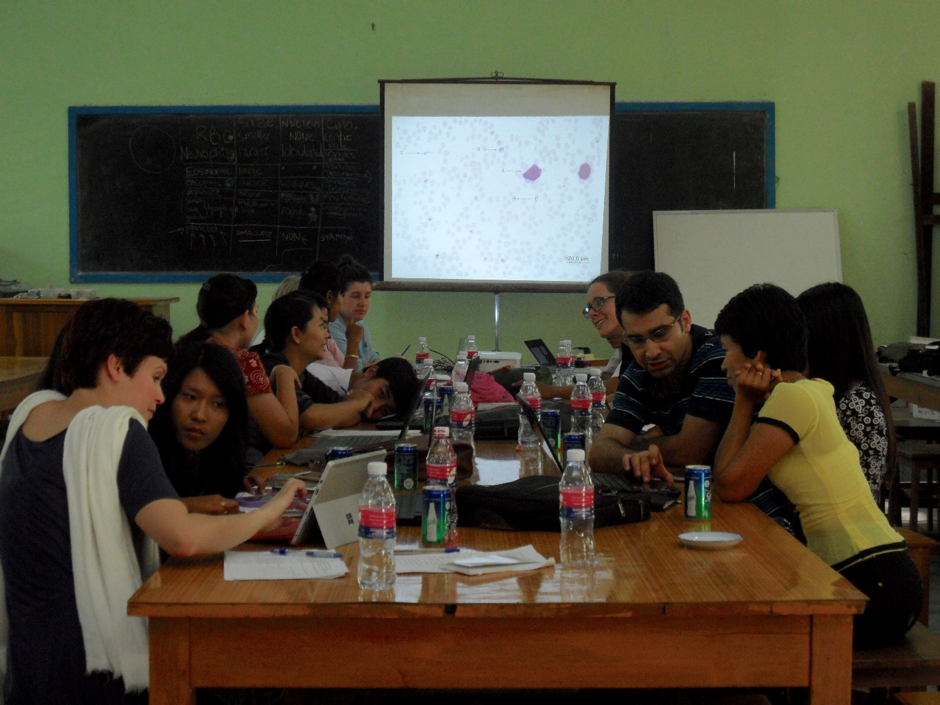
UVS and UoM students and supervisors discussing detection of blood parasites.
The return flight to Melbourne was relatively long, it gave me plenty of time to think and compare what I had seen in the past with what I saw during this trip. One must live with these gorgeous people to realise how easy it is to “do something” and how simple actions can have massive outcomes in a large group of people; actions that can bring more “happiness” to their lives.
My name is Omid, meaning “hope” in Persian language. Being hopeful is probably the most valuable skill that I have; however visiting the Central Dry Zone in Myanmar taught me that there is no limit in this particular concept. Over two weeks I was privileged to visit and live with people who are the meaning of the hope; the concept that has got me through plenty of incredibly challenging situations. I have faith that it will do the same for the Myanmar farmers, vets and students.
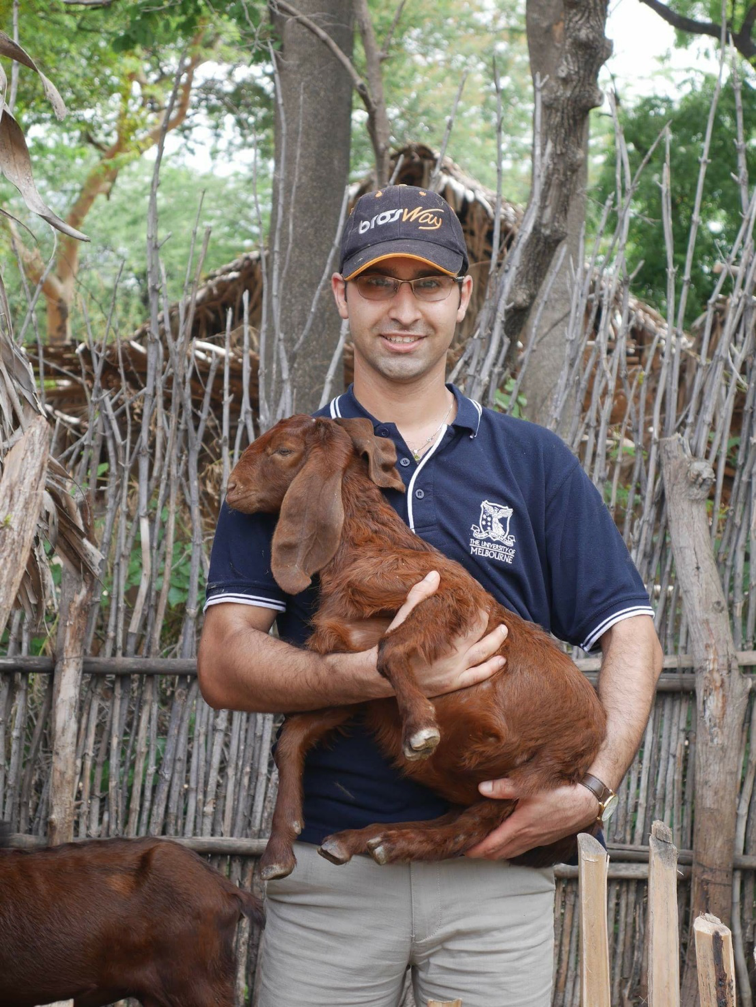
Omid Neishaboory Nejad working in Myanmar


